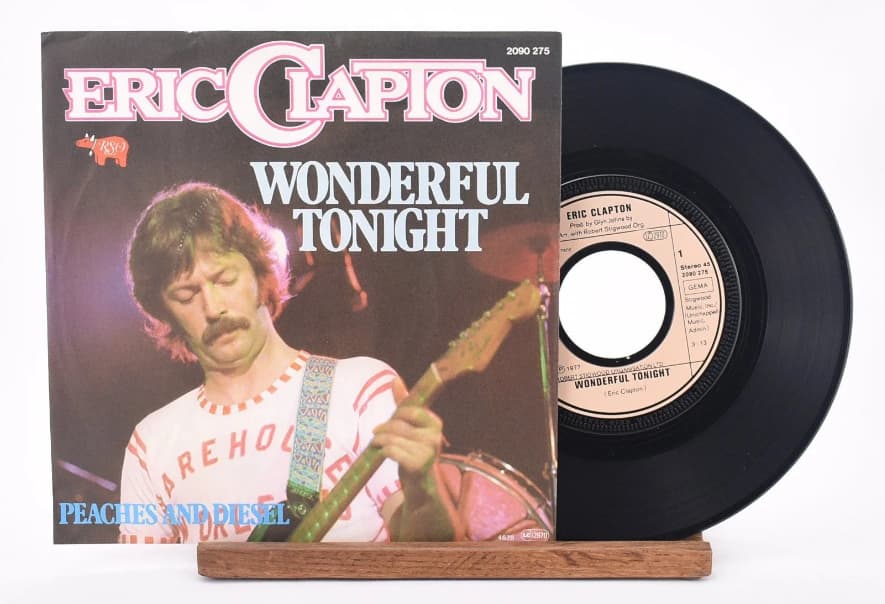
Eric Clapton’s “Wonderful Tonight” is one of those simple songs that can still make a room hush. Written in a moment of ordinary tenderness, the ballad has become a ritual for slow dances, anniversaries and easy memories for generations of listeners.
Clapton penned the tune in the mid-1970s while waiting for his girlfriend, Pattie Boyd, to finish getting ready for an evening out. The couple were bound for a Buddy Holly tribute put together by Paul McCartney, and what might have been a private, domestic scene turned into a song that would follow millions of couples onto dance floors. Recorded for the Slowhand album and released in 1977, the song’s spare language and gentle guitar have kept it close to the hearts of older audiences who grew up with it.
The music is deliberate and simple. A soft electric guitar, a careful vocal line and lyrics that fit into a pocket of ordinary life — all of it makes the listener feel part of a small, intimate moment. The words describe a man admiring his partner as she prepares for a night out, and then again as they move through a crowd. The honesty is disarming.
It’s late in the evening / She’s wondering what clothes to wear / She puts on her makeup / And brushes her long blonde hair / And then she asks me, “Do I look all right?” / And I say, “Yes, you look wonderful tonight” — Eric Clapton, songwriter
That plainness is the song’s power. It does not promise grand gestures. Instead, it catches small kindnesses: holding the keys, helping someone to bed, saying what you feel. Pattie Boyd, who inspired the lyrics, later reflected on the awkwardness and affection of those domestic pauses in public life. For many listeners, the song became proof that romance could be gentle rather than theatrical.
I feel wonderful because I see the love light in your eyes / Then the wonder of it all is that you just don’t realize / How much I love you — Eric Clapton, songwriter
Critics and fans often point to that line about the “love light” as the emotional core. Musicians praise the restraint in Clapton’s playing: no flashy solos, only a warm, melodic guitar that holds the feeling. The song’s structure makes it easy to sing along, and that singability helped it cross generations. It is a staple at weddings and proms, and older listeners cite it as a steady comfort — a soundtrack to dances and evenings at home.
Beyond personal moments, “Wonderful Tonight” has a quiet cultural footprint. It helped shape the softer side of rock balladry in the late 1970s, and its popularity opened the door for countless covers and reinterpretations. Radio programmers found it fit easily into mixed-age playlists. Musicians learned from its economy: a few precise images can carry more emotion than long, ornate metaphors.
The song also sits at an uncomfortable intersection of celebrity life and private feeling. Clapton wrote from a domestic place, but the lines became public property. Pattie Boyd’s role in the story made fans curious about real lives behind the lyrics. For older listeners especially, the song is both memory and evidence — a small domestic scene frozen into pop culture.
Even decades later, when a familiar piano or guitar intro begins, many people in a room will lean closer. They know the words, the pauses, the gentle resolve in the final verse. It is a rare kind of song: plain on the surface, stubbornly intimate underneath. People still dance to it. Parents pass it to their children. In that way, Clapton’s quiet evening has kept on becoming other people’s evenings — and the moment he turned waiting into music still hangs in the air, as if someone might add another line but then—